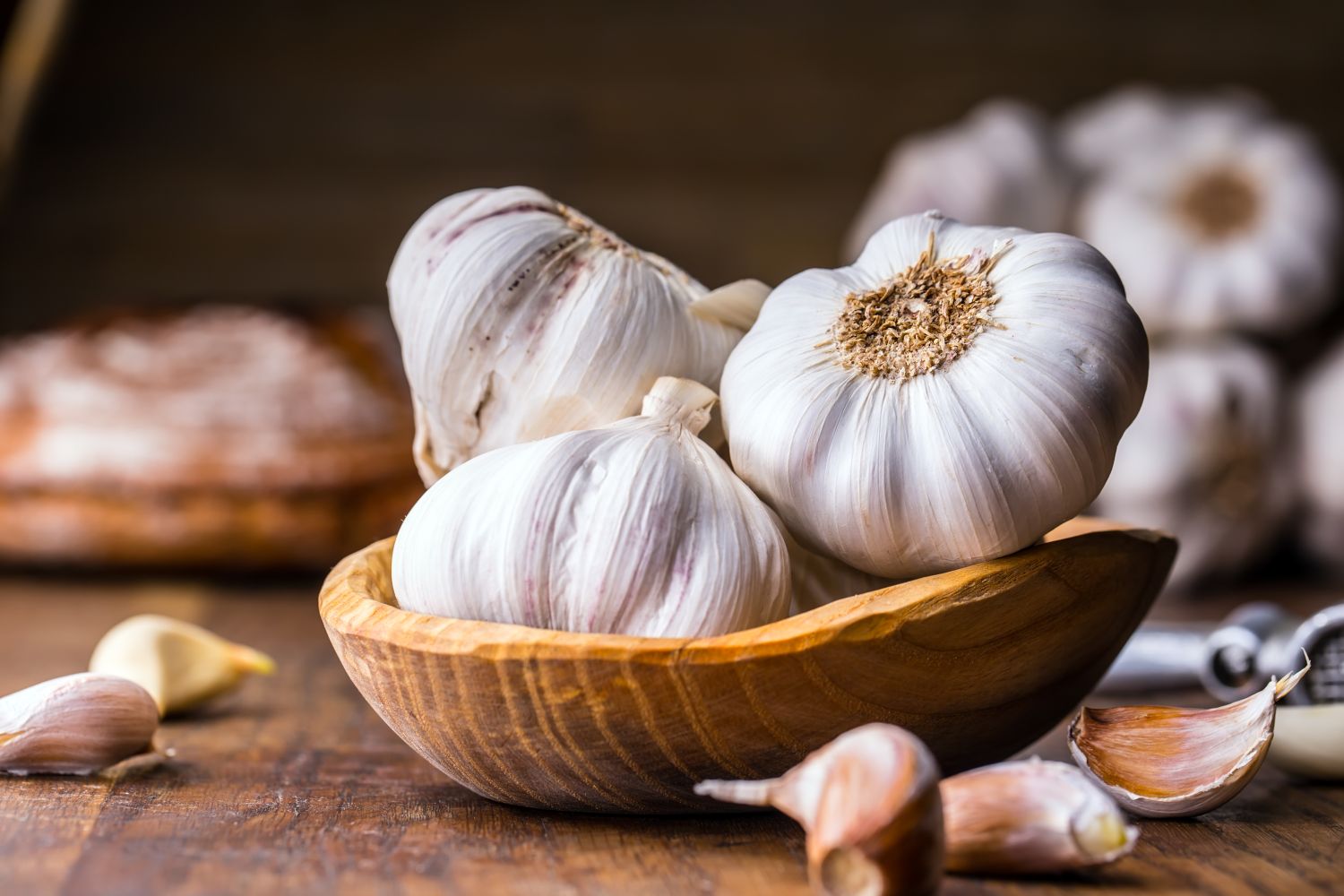Scientists have varying opinions on which type of garlic is most effective for lowering blood cholesterol.
Garlic has been used in folk medicine for centuries for its medicinal properties. In order to prove the effectiveness of this vegetable or spice, many studies have been conducted on the effects of garlic on blood cholesterol levels.
Research results have shown that garlic intake can reduce cholesterol levels, while, on the other hand, some analyses believe that garlic has no effect on lowering cholesterol.
Garlic contains medicinal allicin
Among the scientific studies that have shown that garlic can lower cholesterol levels, opinions differ on which types of garlic are the most effective.
Researchers state that raw garlic cloves contain a substance called alliin – an organosulfur compound that possesses chemotherapeutic activity and is obtained from all cloves belonging to the Alliaceae family. Alliin is converted into a sulfur-based compound called allicin when exposed to air.
Allicin is the compound that gives garlic its distinctive smell and is the main health benefit of garlic. It contains oxygen, sulfur, and other chemicals that give garlic its antibacterial and disease-fighting properties.
Allicin is an unstable compound that is only present briefly in young garlic after it is cut or crushed. Chopping or crushing a fresh clove of garlic releases more allicin than using the whole clove, and it is best to use it immediately for maximum benefit. Studies have linked allicin to a number of health benefits, including:
lowering “bad” LDL cholesterol
improving immunity
lowering blood pressure.
Which types of garlic are most effective at lowering cholesterol?
The way food is prepared affects the amount of allicin, and different garlic products will lower cholesterol levels at different rates, scientists say, and they highlight the following types of garlic as the most effective:
Black garlic extract: Dark brown or black garlic is obtained by the old method of keeping garlic heads or cloves at low temperature and high humidity for several weeks.
Kyolic garlic extract: A type of aged garlic extract (AGE).
Kyolic garlic is an odorless extract that people store to “age” naturally, that is, to dry for up to 20 months. This black garlic is created by a fermentation process by letting raw garlic sit for several weeks. It first turns brown, then blackens.
Raw garlic: Garlic in its natural form.
Garlic powder: A spice made from dehydrated raw garlic.
Garlic oil: An oil made from steamed crushed garlic.
Garlic tablets: These may contain garlic powder or oil and are usually odorless.
Scientists differ on which type of garlic is most effective at lowering cholesterol levels. Research has shown, for example, that kyolic garlic extract — a type of aged garlic extract (AGE) — may provide the most consistent benefits in lowering total cholesterol compared to other types of garlic.
Both garlic powder and garlic oil stand out as effective at lowering cholesterol.
A 2020 study cites several studies showing that aged (kyolic) black garlic extract reduces “bad” LDL cholesterol and increases “good” HDL cholesterol. In those studies, participants took 300 milligrams, or 6 grams, of aged black garlic extract twice daily for either 4 or 12 weeks.
On the other hand, crushed or powdered garlic is thought to be ineffective at lowering blood cholesterol levels. The study authors attribute this to the possible loss of allicin during garlic processing.








